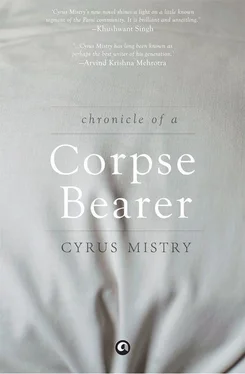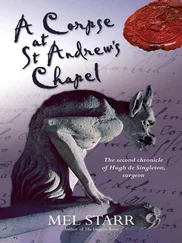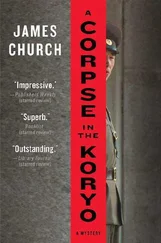‘I was alarmed, too,’ said Jungoo, vouching for the woman’s size. ‘Somehow, huffing and puffing like coolies, we moved her onto the bier.’
‘Spilling off its sides she was, too,’ interjected Farokh.
‘The next part was more difficult — lifting the woman and the bier onto the floor of the hearse. .’
‘The funny thing about it all,’ explained Khushro, ‘was that through all this, the husband and two grown-up sons merely stood by disinterested, not offering to lend a hand, and moreover acting very casual, as though they considered it all in the day’s work for us professionals. Behnchoad, Farokh and Jungoo and me, our balls nearly fell off, but somehow we managed to lift the bier and push her into the hearse.
‘Then the husband visibly relaxed. He sidled up to me and said in a tearful whisper, “Carry her gently, please, I beg you. . Like a flower. .”
‘Then, shamefacedly, like a man indulging in a private, dirty act, he slipped me two tens. .’
‘Two tens? For carrying a grand piano?’ exclaimed Bomi. ‘You should have thrown them in his face!’
Khushro said, to all of us who had been following his story:
‘I was too breathless, too exhausted even to think of anything to say. .nor did I feel the need to retort. But as we drove off, a perfect answer popped into my head. And I regretted not being more quick-witted. I wanted to lean out of the moving hearse, and yell at the top of my voice:
“Like a flower, bawaji? Who? That she-elephant. .? For her you’ll need a crane!”’
I like Khushro. He seems a genuinely decent sort.
(vi)
Another member of our corps who interests me a great deal is young Kobaad. Only eighteen when he started work at the Towers, that is, about the age I was when I first met Sepideh, he should be at least twenty-five now.
I knew Kobaad had come from some place outside Bombay— Nargol or Dahanu or Bharuch or Bhiwandi, one of those Parsi settlements in Gujarat — I forget which. While he was still a child, his father, a small trader, moved to Bombay with his wife and five children. He had shifted to the city to try and improve his business prospects.
It was a miscalculation. While he had been making a living of sorts in the small town in Gujarat, several things went wrong for him when he moved here. He could not establish himself, and found living expenses too high. Finally, he was reduced to becoming an itinerant vendor: needles and threads, twine, thimbles, knitting prongs, hair brushes and plastic combs, glass baubles, trinkets and other such trifles; these were the objects he carried in a large, shiny tin trunk from door to door. He spent most of his day marching through various housing colonies of the congested inner city, calling out in a cracked and quavering voice that shrieked audibly above the din of traffic:
‘ Nikhiya-bur-rush . . sooeee . . Bangles and beads, thimbles and thread, all sizes of stainless steel needles. .’
One day, while walking through crowded Kalbadevi peddling his wares, he was gored and trampled upon by a mad bull which may have been dazzled by the light of the hard sun reflected in his shiny tin box. The box, too, containing his treasure trove, was trampled upon and crushed. The totally unexpected death of his father was a great blow to the poor mother and the little ones.
Kobaad, being the eldest, it fell upon him to drop out of school and start working. But the mother wanted him to find employment anywhere, so long as it was not within the weltering chaos of a city that had already claimed her husband.
The horror and pity of their recent bereavement, the feeling of intense piety it had inspired in her, the great natural beauty and peace she experienced and imbibed during the three-day funeral obsequies at Doongerwaadi made her decide to seek a job for Kobaad that would rarely, if ever, take her son outside the boundaries of this safe haven; where, apart from everything else, the Punchayet would provide rudimentary residential quarters for the whole family. Her efforts bore fruit, and Kobaad was appointed corpse bearer.
But more than anyone else in his family, I do believe it was young Kobaad who was most deeply affected by his father’s sudden death. For nearly three months after the latter’s bizarre accident, Kobaad seemed preoccupied, continuously in a state of distracted dreaminess, other-worldliness — call it what you will— as though it was he, rather than his father, who had crossed over into the shadowy unknown. You could see he was grieving terribly.
Then after three months had passed, late one night I heard the plaintive sounds of a harmonium. I knew that Kobaad owned one, but had never heard him play it. He was playing softly now, hesitantly, without pumping the bellows too hard, searching out a plaintive tune. Three nights later, I heard him singing that same melancholic tune, along with lyrics he had put to it. The song was in Gujarati, set to a jaunty rhythm. It was very moving nevertheless; especially if one spared a moment to think of the events in Kobaad’s own life that had prompted such a sad and obsessive investigation into the heart of impermanence.
I will try to give a rough translation of what I remember of that unforgettable song:
Foolish to make plans:
O how foolish
To dream, presume, aspire . .
Every calculation you so painstakingly undertook
Is flawed. The numbers simply refuse to add up
To anything but nought . .
Time flashes past you. A
Man’s life is as enduring
As a lit matchstick, and just as
Brittle .
Oh yes, I’ve said it once,
But I’ll
Say it again:
’Tis foolish to make plans,
To dream, presume, aspire. .
You know nothing turns out quite the way
You had hoped .
Nothing,
Oh, nothing ever does .
I have rendered the gist of the song into English from memory. I may have dropped a line or two, perhaps even a whole verse. But as to its circular melody, the hauntingly resonant chords, I have no way of evoking their beauty. . Saddening, and painful to consider what will become of Kobaad’s considerable talent in the years to come.
Keepers of the Unclean. .? Is that how posterity will label this sketchy log? Future generations won’t be interested in it at all, I’m certain; nor is there any likelihood of its ever coming to public attention .
Still, as I dip my stylus in a pot of Waterman’s royal blue ink, and continue to scratch upon the leftover blanks of my eviscerated notebooks, the irony doesn’t escape me. As much as I hated those eight years of schooling, they gave me the tools to keep myself occupied through the bleakness of my declining years . .
As a rule, I can’t bear to read any of this. Yet when I do turn the pages back, reread it in snatches, I wonder if I haven’t compromised the veracity of my narrative with too much grimness. Maybe an unmistakable deficit of humour as well ?
I must point out: rubbing shoulders with the dead at odd hours of day and night doesn’t necessarily make us more gloomy, dour or over-serious about life. The truth is, like everybody else we corpse bearers, too, behave with the smug breeziness of immortals — convinced that death cannot strike us down in the conceivable future .
Make no mistake — my own narrative may be responsible for this erroneous impression — but much of the time our lives were anything but dull, dreary and repetitious. Despite routine, there was always room for excitement, passion and a frenzied tomfoolery .
Читать дальше












